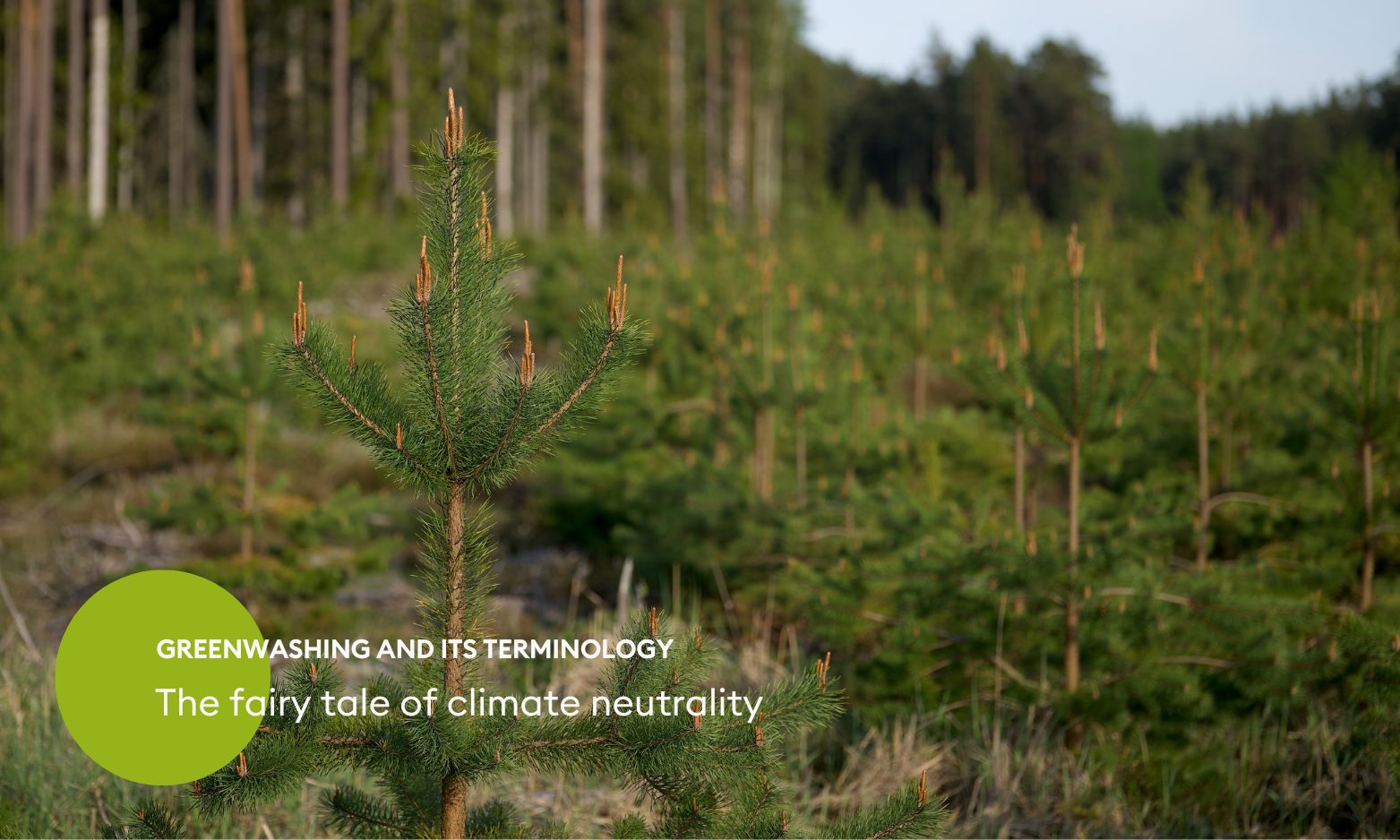 Back
Back
The fairy tale of climate neutrality
01.07.2024 | by Hilal Albaba
For years, more and more products have been appearing on the market that are labeled as “climate neutral”. Consumers often pay a higher price for these products in the hopes of doing something good for the environment and the climate. But while the idea sounds appealing, there are some crucial aspects to consider.
What does the term “climate neutral” actually mean?
First of all, “climate neutral” is not a protected term. This means that companies can use the term on their products without having to follow guidelines that prove the actual sustainability of these products.
The label “climate neutral” often refers to participation in compensation projects in non-EU countries with the aim of offsetting the CO2 emissions of the sold goods. Examples of such projects include financial support to prevent deforestation, planting new trees, investing in renewable energies or measures to improve energy efficiency in developing countries.
What appears promising at first glance unfortunately has its downsides. Research shows that such projects fail more often than they succeed.
One prominent example is the REDD+ (Reducing Emissions from Deforestation and Forest Degradation) program. Despite the good intentions, many REDD+ projects have not achieved the desired outcome.
According to experts, 9 out of 10 offsetting projects are not successful, i.e. they do not lead to CO2 savings.
The consequences of such misguided climate protection projects are extensive. On the one hand, consumers feel deceived when they realize that their additional contribution has not had the desired effect. On the other hand, companies will carry on with their harmful business models that are damaging the climate whilst offsetting their carbon footprint very cheaply on paper – without any actual CO2 reductions.
Truly climate-friendly entrepreneurship means investing in sustainable production processes, reducing waste and using renewable energy. Consumers should be aware that not every “climate-neutral” label is synonymous with a genuine environmental benefit and should critically question how this neutrality is achieved.
Landpack has rejected the use of the term “climate neutral” for years and does not participate in the aforementioned compensation projects.
Instead, we aim to cause as few emissions as possible by continuously optimizing our production processes and day-to-day business. We source our straw from local farmers, avoid air travel and always have an eye on our CO2 emissions.
We also use 100% regional green electricity and 100% biogas for the production of our Landboxes and for our administration.
The core of our business model is genuine environmental protection. That is why we welcome the decisions of the courts on greenwashing in connection with CO2 compensation projects.
Categories
Tags
Author
Hilal Albaba


